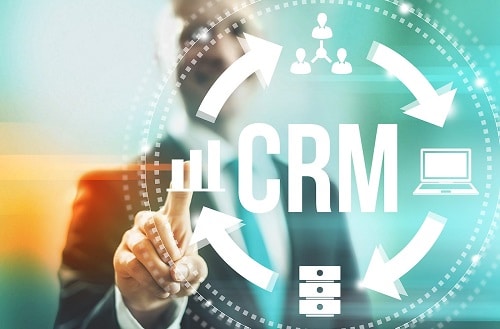Customer Relationship Management (CRM) is a strategy that helps businesses to manage their interactions with customers and improve customer satisfaction. CRM software has been around for several years, but with the rise of new technologies and changing customer expectations, the future of CRM is evolving. In this article, we will discuss the trends and predictions for the future of CRM.
The Rise of Artificial Intelligence (AI) and Machine Learning (ML)
AI and ML are changing the way businesses approach CRM. AI-powered chatbots can provide customers with quick answers to their queries, while ML algorithms can help businesses to personalize their marketing messages based on customer behavior. AI and ML can also help businesses to analyze large amounts of customer data to identify patterns and trends that can be used to improve the customer experience.
Personalization of Customer Experience
Customers today expect a personalized experience when they interact with businesses. This means that businesses need to have a deep understanding of their customers’ needs and preferences. With the help of AI and ML, businesses can gather and analyze customer data to deliver personalized experiences across all touchpoints. This can include personalized product recommendations, customized marketing messages, and tailored customer service interactions.
Omnichannel Approach
An omnichannel approach to CRM is becoming increasingly important as customers interact with businesses across multiple channels, including social media, email, phone, and in-store. An omnichannel approach involves integrating all these channels to provide a seamless customer experience. With the help of CRM software, businesses can manage all customer interactions in one place and provide a consistent experience across all channels.
Integration with other Technologies
CRM is no longer a standalone solution. Today, businesses are looking for CRM solutions that integrate with other technologies, such as marketing automation, e-commerce platforms, and analytics tools. Integrating CRM with other technologies can help businesses to streamline their operations and improve the customer experience.
Predictive Analytics
Predictive analytics involves using historical data to predict future outcomes. With the help of predictive analytics, businesses can anticipate customer needs and preferences and take proactive measures to meet those needs. Predictive analytics can also help businesses to identify potential customer churn and take steps to retain those customers.
Mobile Optimization
Customers are increasingly using their mobile devices to interact with businesses, and CRM solutions need to be optimized for mobile. This means that businesses need to ensure that their CRM software is mobile-friendly and can be accessed from any device. Mobile optimization can help businesses to provide a seamless customer experience, even when customers are on-the-go.
Cloud-based Solutions
Cloud-based CRM solutions are becoming increasingly popular as businesses look for flexible and scalable solutions. Cloud-based solutions allow businesses to access their CRM data from anywhere and at any time, without the need for on-premises hardware. Cloud-based solutions also offer better security and reliability compared to on-premises solutions.
Conclusion
The future of CRM is exciting and full of possibilities. With the help of AI and ML, businesses can deliver personalized experiences to customers, while an omnichannel approach can provide a seamless experience across all touchpoints. Integration with other technologies, such as marketing automation and analytics, can help businesses to streamline their operations and improve the customer experience. Predictive analytics can help businesses to anticipate customer needs and take proactive measures to meet those needs. Mobile optimization and cloud-based solutions can help businesses to provide a seamless experience, no matter where customers are or what device they are using.
FAQ
What is CRM?
CRM stands for Customer Relationship Management. It is a strategy that helps businesses to manage their interactions with customers and improve customer satisfaction. CRM software is used to collect, store, and analyze customer data to improve the customer experience.
What are some of the trends in the future of CRM?
Some of the trends in the future of CRM include the rise of artificial intelligence and machine learning, the personalization of the customer experience, an omnichannel approach, integration with other technologies, predictive analytics, mobile optimization, and cloud-based solutions.
How can AI and ML improve CRM?
AI and ML can help businesses to gather and analyze customer data to deliver personalized experiences, provide quick answers to customer queries through chatbots, and identify patterns and trends in customer behavior that can be used to improve the overall customer experience.
What is an omnichannel approach to CRM?
An omnichannel approach involves integrating all customer interaction channels, such as social media, email, phone, and in-store, to provide a seamless and consistent customer experience. With the help of CRM software, businesses can manage all customer interactions in one place and provide a consistent experience across all channels.
Why is mobile optimization important for CRM?
As more customers interact with businesses through their mobile devices, it’s important for CRM software to be optimized for mobile. This can help businesses to provide a seamless and consistent experience across all devices and touchpoints, improving the overall customer experience.
What are the benefits of cloud-based CRM solutions?
Cloud-based CRM solutions offer flexibility, scalability, better security, and reliability compared to on-premises solutions. Cloud-based solutions allow businesses to access their CRM data from anywhere and at any time, without the need for on-premises hardware. This can help businesses to save costs and streamline their operations.
How can predictive analytics help businesses in CRM?
Predictive analytics can help businesses to anticipate customer needs and preferences and take proactive measures to meet those needs. It can also help businesses to identify potential customer churn and take steps to retain those customers, improving overall customer satisfaction and loyalty.
In conclusion, the future of CRM is full of exciting possibilities, with the rise of new technologies and changing customer expectations. By embracing these trends and predictions, businesses can improve their customer experience, streamline their operations, and drive growth and profitability. With the help of CRM software, businesses can gather and analyze customer data to provide personalized experiences, an omnichannel approach, and predictive analytics to anticipate customer needs and preferences. Cloud-based solutions and mobile optimization can help businesses to provide a seamless experience across all devices and touchpoints.
